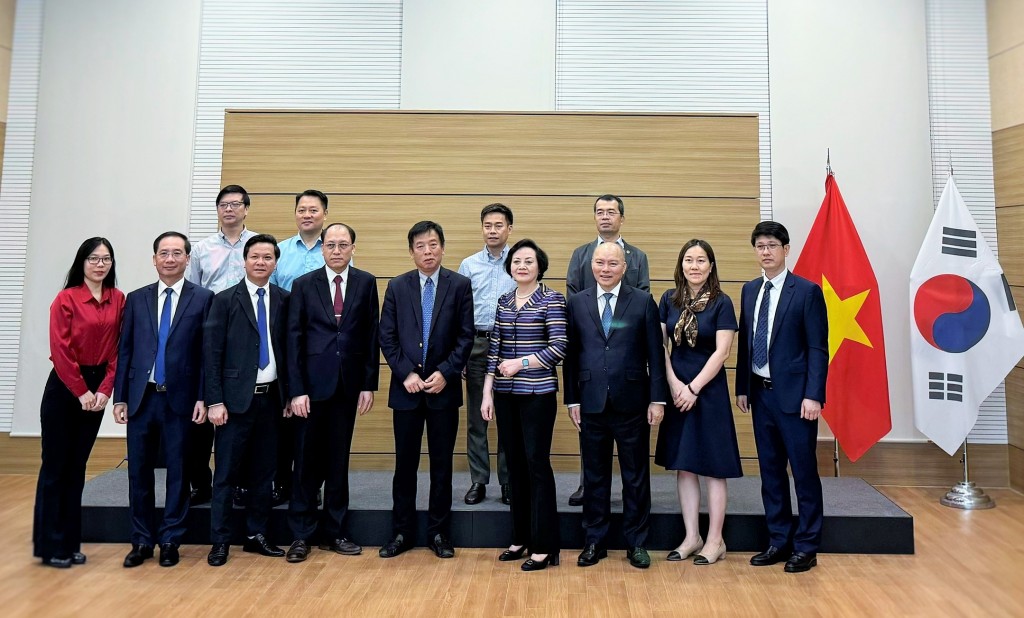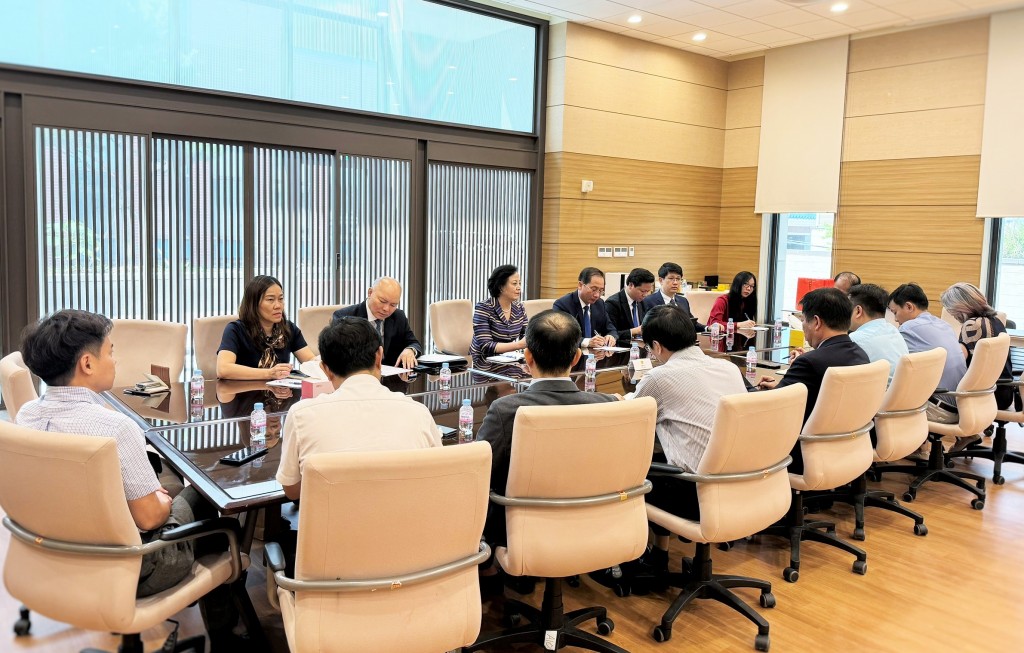On July 15, 2024, the Ministry of Home Affairs (MoHA) delegation, led by Minister Pham Thi Thanh Tra, worked with the Vietnamese Embassy in the Republic of Korea (RoK).
The delegation included representatives from various ministerial departments: the Office of MoHA, the Department of Local Government, the Department of Civil Servants and Public Employees, the Department of Legislation, the Department of International Cooperation, and the National Academy of Public Administration (represented by Assoc. Prof. Dr. Nguyen Ba Chien, NAPA President).
Mr. Vu Ho, Vietnamese Ambassador to the RoK, and the staff of the Vietnamese Embassy in the RoK received the delegation.
During the meeting, Ambassador Vu Ho reported to Minister Pham Thi Thanh Tra and the delegation on the state of relations and cooperation between Viet Nam and the RoK across various fields, as well as the work situation and personnel of the Embassy.
Ambassador Vu Ho requested Minister Pham Thi Thanh Tra consider increasing the staffing to ensure smooth operations of the Embassy. He also asked for attention and consideration regarding the conditions for promotion and appointments suitable to the specific characteristics of the diplomatic sector.

Minister Pham Thi Thanh Tra and the delegation with the Vietnamese Ambassador to the RoK Vu Ho and the Embassy staff.
Minister Pham Thi Thanh Tra acknowledged and highly appreciated the performance of the Vietnamese Embassy in the RoK, especially during the recent preparation for the Prime Minister’s working program, which was conducted with high intensity and excellent results.
She also shared the achievements in various fields of state management by MoHA over the past period. She mentioned that the purpose of the visit was to study the RoK’s experiences to serve the revision and supplementation of several laws, such as the Law on Organization of the Government, the Law on Organization of Local Governments, the Law on Cadres and Civil Servants, and the Law on Public Employees with a new approach to meet the evolving trends and requirements.
She requested the Vietnamese Embassy in the RoK to assist MoHA in researching issues and study materials related to state governance, the organization of the state administrative apparatus, civil service management, human resource management, and policies for attracting high-quality human resources into the public sector, smart urban government models, digital transformation, etc. This will help MoHA refer to South Korean experiences to better advise on institutional development and policy formulation in various areas of state management under MoHA.





